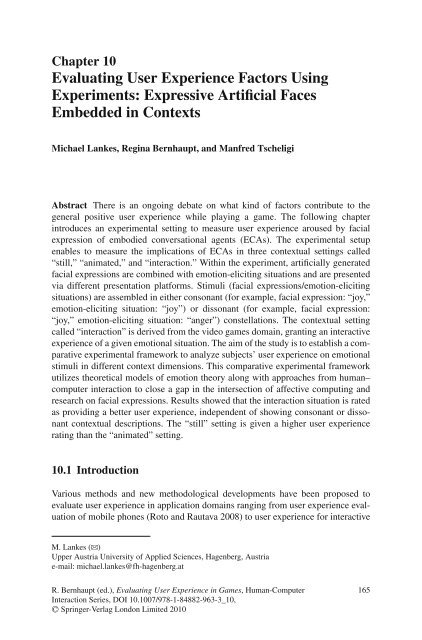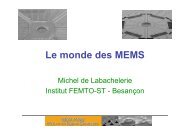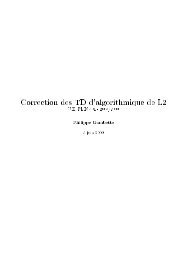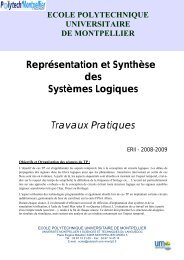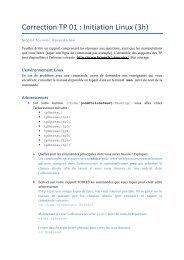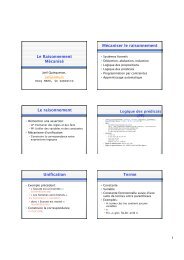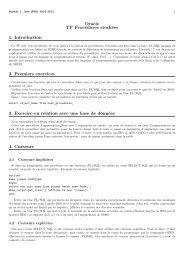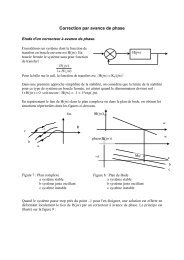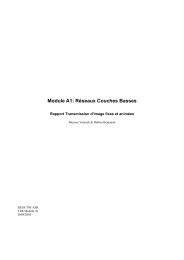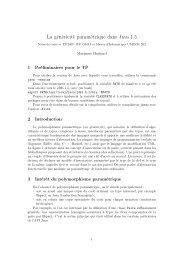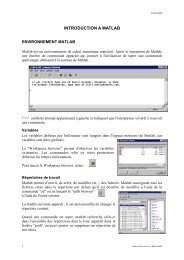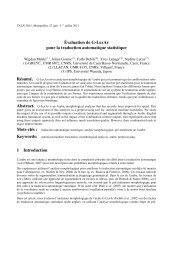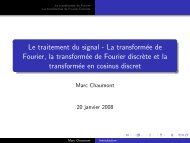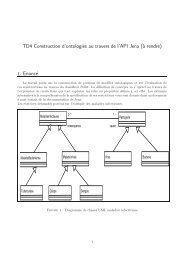Evaluating User Experience in Games: Concepts and Methods - Lirmm
Evaluating User Experience in Games: Concepts and Methods - Lirmm
Evaluating User Experience in Games: Concepts and Methods - Lirmm
You also want an ePaper? Increase the reach of your titles
YUMPU automatically turns print PDFs into web optimized ePapers that Google loves.
Chapter 10<br />
<strong>Evaluat<strong>in</strong>g</strong> <strong>User</strong> <strong>Experience</strong> Factors Us<strong>in</strong>g<br />
Experiments: Expressive Artificial Faces<br />
Embedded <strong>in</strong> Contexts<br />
Michael Lankes, Reg<strong>in</strong>a Bernhaupt, <strong>and</strong> Manfred Tscheligi<br />
Abstract There is an ongo<strong>in</strong>g debate on what k<strong>in</strong>d of factors contribute to the<br />
general positive user experience while play<strong>in</strong>g a game. The follow<strong>in</strong>g chapter<br />
<strong>in</strong>troduces an experimental sett<strong>in</strong>g to measure user experience aroused by facial<br />
expression of embodied conversational agents (ECAs). The experimental setup<br />
enables to measure the implications of ECAs <strong>in</strong> three contextual sett<strong>in</strong>gs called<br />
“still,” “animated,” <strong>and</strong> “<strong>in</strong>teraction.” With<strong>in</strong> the experiment, artificially generated<br />
facial expressions are comb<strong>in</strong>ed with emotion-elicit<strong>in</strong>g situations <strong>and</strong> are presented<br />
via different presentation platforms. Stimuli (facial expressions/emotion-elicit<strong>in</strong>g<br />
situations) are assembled <strong>in</strong> either consonant (for example, facial expression: “joy,”<br />
emotion-elicit<strong>in</strong>g situation: “joy”) or dissonant (for example, facial expression:<br />
“joy,” emotion-elicit<strong>in</strong>g situation: “anger”) constellations. The contextual sett<strong>in</strong>g<br />
called “<strong>in</strong>teraction” is derived from the video games doma<strong>in</strong>, grant<strong>in</strong>g an <strong>in</strong>teractive<br />
experience of a given emotional situation. The aim of the study is to establish a comparative<br />
experimental framework to analyze subjects’ user experience on emotional<br />
stimuli <strong>in</strong> different context dimensions. This comparative experimental framework<br />
utilizes theoretical models of emotion theory along with approaches from human–<br />
computer <strong>in</strong>teraction to close a gap <strong>in</strong> the <strong>in</strong>tersection of affective comput<strong>in</strong>g <strong>and</strong><br />
research on facial expressions. Results showed that the <strong>in</strong>teraction situation is rated<br />
as provid<strong>in</strong>g a better user experience, <strong>in</strong>dependent of show<strong>in</strong>g consonant or dissonant<br />
contextual descriptions. The “still” sett<strong>in</strong>g is given a higher user experience<br />
rat<strong>in</strong>g than the “animated” sett<strong>in</strong>g.<br />
10.1 Introduction<br />
Various methods <strong>and</strong> new methodological developments have been proposed to<br />
evaluate user experience <strong>in</strong> application doma<strong>in</strong>s rang<strong>in</strong>g from user experience evaluation<br />
of mobile phones (Roto <strong>and</strong> Rautava 2008) to user experience for <strong>in</strong>teractive<br />
M. Lankes (B)<br />
Upper Austria University of Applied Sciences, Hagenberg, Austria<br />
e-mail: michael.lankes@fh-hagenberg.at<br />
R. Bernhaupt (ed.), <strong>Evaluat<strong>in</strong>g</strong> <strong>User</strong> <strong>Experience</strong> <strong>in</strong> <strong>Games</strong>, Human-Computer<br />
Interaction Series, DOI 10.1007/978-1-84882-963-3_10,<br />
C○ Spr<strong>in</strong>ger-Verlag London Limited 2010<br />
165


